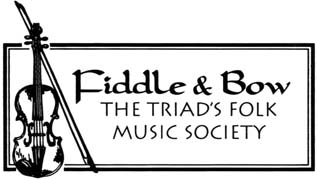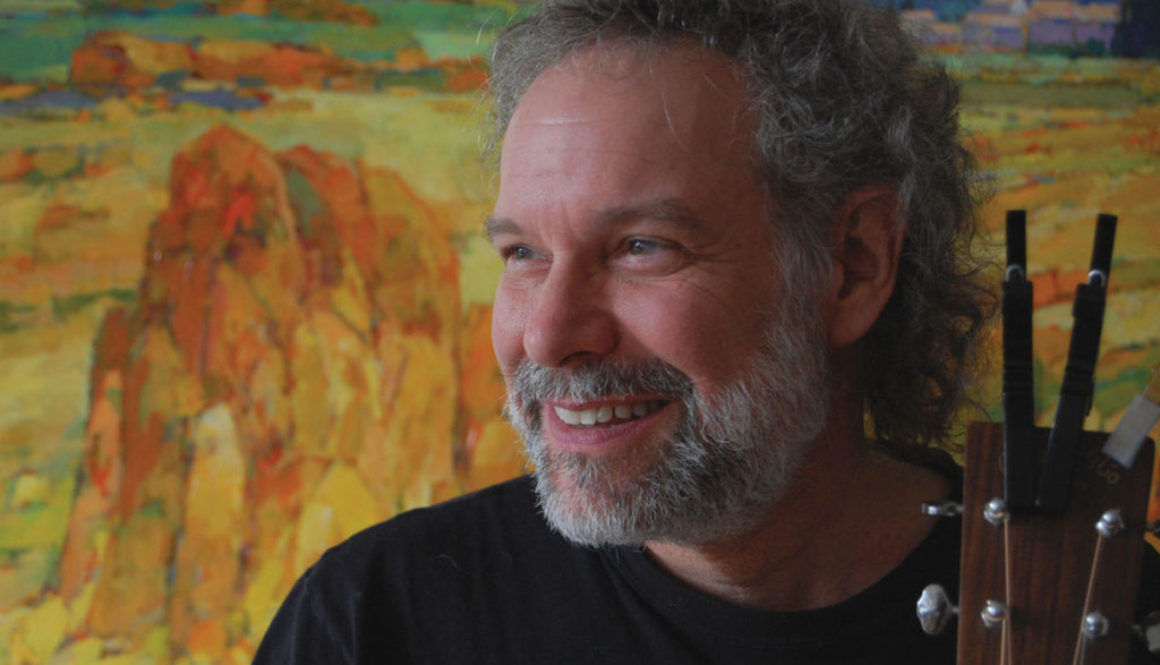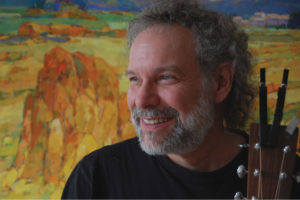Fiddle & Bow bringing Gorka to Muddy Creek
Winston-Salem Journal’s Relish
By Eddie Huffman Special Correspondent
Want to go?
What: What: Fiddle & Bow Presents John Gorka
When: 8 p.m. Friday
Where: Muddy Creek Music Hall, 5455 Bethania Road
Cost: $20
The third time recording his debut album was the charm for John Gorka.
“I was just trying to figure out how to get started,” he said by phone from a tour stop in Southern California. “We wanted to be as sure as we could be.”
Gorka, 58, has performed for Winston-Salem’s Fiddle & Bow Society many times since the release of “I Know,” his first album, in 1987. He returns Friday for his first performance at Muddy Creek Music Hall for the society.
“He’s one of those performers that I like to say have just got the whole package,” said Sonny Thomas, Fiddle & Bow’s co-founder. “They’re great musicians; they play well instrumentally; they’re good singers; and then they’ve just got that stage presence. They’re funny when they need to be funny.”
Gorka’s latest album, “Before Beginning: The Unreleased ‘I Know’ — Nashville, 1985,” is a variation on “I Know” — an earlier take on many of the same songs. Gorka decided to put the material out for the first time in 2016, more than three decades after the versions were originally recorded.
“I thought it was good, but I didn’t know if it was the right kind of good,” he said. “I was kind of finding my way, so I ended up not putting it out until all these years later.”
He grew up in New Jersey and started playing professionally in the late 1970s. He immersed himself in the scene at Godfrey Daniels in Bethlehem, Pa., a coffeehouse famous in folk-music circles, and Jack Hardy’s Fast Folk circle in New York. He got to know other singer-songwriters, including veterans such as Tom Paxton, Eric Andersen and rising stars such as Shawn Colvin and Nanci Griffith.
Griffith recommended Gorka to her producer, Jim Rooney, a Nashville veteran who also produced John Prine. Gorka headed south in his 1974 Plymouth Duster in the fall of 1985.
“I probably left on Saturday and arrived Sunday night,” Gorka said. “We started recording on Monday morning. Jim put me up at his place.”
Rooney hand-picked most of the musicians for the recording sessions, including Stuart Duncan, who was just starting to make a name for himself as a premier fiddle and mandolin player in Music City. But Gorka asked some old friends from up north to participate, as well, including Mike Dugan, a blues guitarist from Bethlehem, and a couple of singers he knew from New York: Colvin and Lucy Kaplansky.
“Since it was my first time, I wasn’t really sure what I was going for,” Gorka said. “Jim heard different influences on the songs and tried to bring them out.”
Gorka ended up taking two more passes at the album before ending up with the more subdued version released as “I Know.” For the followup sessions he recorded much closer to home in Woodbridge, N.J. The producer for those later sessions was Bill Kollar, another collaborator Gorka met in the New York folk scene.
“He thought we could get a little closer to how I sounded solo,” Gorka said. “We ended up making it two more times. We did a version on an eight-track tape machine, then he got a 24-track machine and we did it again.”
Some of the songs on “I Know” remain fan favorites, he said, including “Love is Our Cross to Bear” and “I Saw a Stranger with Your Hair.” Gorka doesn’t perform with a set list, but usually ends up playing songs from the album in concert.
He has released more than a dozen records since “I Know” and played and recorded with the folk supergroup Red Horse, which also features Kaplansky and Eliza Gilkyson.
“With a tangle of songs that emotionally connect us all and leave a tender trace, John Gorka stimulates the cerebrum, keeps our smiles agile and fit and reconnects us with what really matters most in music: honesty,” Brian D’Ambrosio wrote in The Huffington Post.
The tapes from the Nashville sessions accompanied Gorka on several moves, finally ending up at the home he now shares in Minnesota with his wife and children. He decided to pull the tapes out of storage to see if they would still play. What he heard surprised him.
“I hadn’t listened to it in 30 years,” he said. “I was able to look at in a different way, hear it with fresh ears. It was almost like listening to somebody else, because I don’t sound like that now, and I will never sound like that again.”
The age of the tapes meant they had to be handled with care. Rob Genadek, who has produced and engineered albums for Gorka in recent years, “baked” the tapes by sealing them in a box with a hair dryer running for several hours to prevent the magnetic particles from flaking off. Eventually the tapes were digitized and prepared for release, 31 years after the songs were recorded.
“I feel like I made the right decision back then, but I thought there was so much good on this that I wanted people to hear it,” Gorka said. “One of things that I like is some people hear it and say, ‘Why didn’t he put this out?’”


